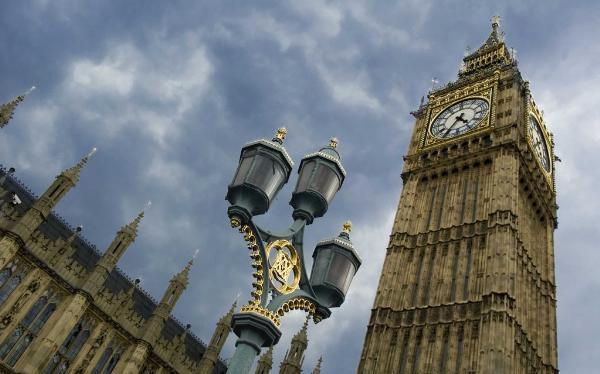As Parliament returned after the summer recess last week, so did the ongoing scandal over MPs’ expenses. Examining the ethical questions raised by these latest developments, Joe Egerton argues that attempts to clean up the mess have backfired, and that the way forward lies in greater attention to the principles of St Thomas Aquinas.
Earlier this year, when the first wave of revelations about MPs’ expenses hit the media, Cardinal Keith Patrick O’Brien made a direct appeal to Members of Parliament in his Pentecost sermon:
Many other people have been equally shattered at what we might call the ‘fall from grace’ of many called to serve in politics and public life, ...On behalf of very many suffering and bewildered people, I call on those in public service of whatever kind who have failed us to reclaim the high standards which we expect of them ....[1]
The Cardinal added, prophetically, ‘however difficult this may be to implement.’ An immediate reaction to developments since Parliament returned on 12 October 2009 might be ‘they aren’t even trying’. This is not true. The gulf between us and those whom we elected to represent us has widened because attempts to clean up the mess have backfired.
Developments since the summer
When the expenses scandal broke, the Members’ Estimates Committee (MEC) appointed Sir Thomas Legg to audit all the expenses of MPs. The Speaker emphasised that, in the letters sent to individual members as they returned to Parliament after the summer recess,Sir Thomas was giving only a preliminary opinion and that every MP would have three weeks in which to make representations after this initial opinion was given. The MEC has the final say.[2] Some MPs have already repaid what is suggested. Others have identified errors and properly dispute the preliminary finding.[3] Two ‘issues of principle’ have arisen: firstly, whether Sir Thomas acted properly in setting a monetary limit for specific items – notably gardening and cleaning; and secondly, whether he should have required repayment of claims for mortgage interest.
The Standards and Privileges Committee considered a complaint against Jacqui Smith[4], that she had wrongly designated the house she owns jointly with her husband in Redditch (where her children go to school) as a second home. She shares a London home with her sister – she has guaranteed the mortgage, pays fair rent and share of household expenses and shares the living accommodation. The Committee found that she should have designated her London home as a second home and ordered her to make an apology in the House, but did not order her to repay anything. Jacqui Smith’s humiliation was televised. Allegations of a lack of contrition were coupled with comment on the absence of any repayment. This gives rise to a third issue, of whether MPs who have made excessive claims can properly be punished.
Justice and high standards
Justice is integral to high standards.[5] Claiming too much for expenses is unjust.[6] However, a careful distinction needs to be drawn between intentionally making an excessive claim and unintentionally making one.[7] Philosophically and psychologically complex questions as to whether an action is voluntary or involuntary, intentional or unintentional, have for centuries been tied up with whether an individual should be blamed for a particular action.[8] As we do not live in a society with homogeneous shared ideas of morality but in one with competing traditions,[9] it is helpful to add that this article follows the tradition established by Aristotle and St Thomas Aquinas. (To avoid confusion between Sir Thomas Legg and St Thomas Aquinas, I hereafter refer to the former as Sir Thomas and the latter as Aquinas.)
Issue 1: Did Sir Thomas act properly in setting monetary limits for specific items?
The answer is a qualified ‘yes’. As Aquinas points out, repeating Aristotle[10], equity requires attention to what is reasonable in specific circumstances, in this case to expense claims. Second, there has always been a rule limiting claims to money spent wholly, necessarily and exclusively on parliamentary duties. Sir Thomas plainly can determine that a claim was not ‘wholly, necessarily and exclusively’ for such duties. It is ridiculous to say that we do not have an idea of the cost of gardening and cleaning. Sir Thomas has worked out an annual sum on this basis.
Some MPs have argued that because no rule specified limits on these items, Sir Thomas cannot now set out a rule. [11] Aquinas insists that laws must be promulgated and follows St Augustine in saying that judges are obliged to apply written rules.[12] However, St Augustine clearly envisaged that judges could make laws, which then became binding on later judges, so the MEC can agree a rule. But – qualifying the ‘yes’ – Aquinas prohibits such a rule requiring restitution in excess of what was wrongly claimed.
A further qualification arises from Aquinas’s Aristotelian account of equity. Sir Thomas must consider whether the rule covers the circumstances of a specific claim, as circumstances can make a larger claim proper. This qualification may well apply to the Prime Minister and Mr Field. The rule is only a guideline, applying ‘generally and for the most part’.
Sir Thomas must of course continue to make corrections to errors, as he has already done in a number of cases, including Ken Clarke and John Mann.[13] Errors do not ‘discredit’ the process – they would only do that if there were no opportunity to have corrections made.
Issue 2: Should anything be done about claims for mortgage interest?
Because by buying rather than renting some MPs will make capital gains[14], other MPs have complained that Sir Thomas has not demanded repayment of mortgage interest on property. This is a thorny issue. The total allowance for housing is near to what the cost would be of rent and council tax on a three or four bedroom house in inner London – i.e. what a sane system would allow for MP with a family – but Aquinas would argue that an MP can only claim pecuniary loss incurred in working for the state, which, taking account of the possible gain from owning a property, is not the same as the mortgage interest paid.[15] Sir Christopher Kelly – conducting yet another enquiry due to report on 4 November 2009[16] – may recommend that MPs only be able to claim rent. But what is to be done about the financing of a profitable investment leading to gains even if not realised? There is unfinished business here.
Issue 3: Can MPs who have made excessive claims properly be punished?
Yes, but a heavily qualified yes. Aquinas lays down three conditions for lawful punishment: (1) the judgment must not be perverted or unjust; (2) it is ordered by one who is in authority – so ‘The Court of Public Opinion’ is no court at all; and (3) it is based on certain evidence, not mere suspicion.[17]The Jacqui Smith case is worrying because it does not meet the first and may not meet the second condition.
Some of Jacqui Smith’s neighbours had alleged that she had wrongly designated her London home as her main home. Until 2004, because she was a minister, the rules required her to treat her London house as her main home. In 2004, the rule was changed and guidelines were provided, but the final responsibility was left to the MP. MPs have to conduct a balancing or weighting exercise based on a wide range of factors. Jacqui Smith said that she had considered the guidelines and had done what she considered they required. She had asked the relevant Commons authorities, the Department of Finance and Administration, (DFA) to confirm that her interpretation was acceptable, and they did this. The Committee took a different view of what the guidelines required. They described the DFA’s opinion as ‘flawed’. Although they recognise that ‘she was badly advised’, they regard this as only a mitigating circumstance.
The Committee’s approach is itself flawed and is unjust. There is a doctrine, derived from Aquinas and known as ‘probabilism’, that states that if a person wishes to perform a given act, and is in doubt as to whether the moral law forbids that act, then he or she is morally at liberty to perform it if it is supported by an argument whose conclusion has some degree of probability, even if there is an argument supporting the claim that the moral law forbids the act that is more probable.[18] Anyone reading the Report will see that Jacqui Smith had adopted a position that may well have been financially beneficial but was supported by a probable argument. So the Committee’s judgment fails to satisfy Aquinas’s first criterion.
There is also a question over whether Aquinas’s second criterion – that punishment is ordered by one who has authority – was met. In a report generally hostile to Jacqui Smith, Newsnight, commenting on the failure to order her to make any payment, questioned the impartiality of the report on the grounds that only six MPs – five from the Labour party – were present at the Committee meeting. The Committee was technically quorate. On the other hand, the traditional guarantees of impartiality – a chairman who is a senior opposition MP and the presence of MPs from all parts of the House – were absent.[19] If convention trumps the formal rule, this particular meeting lacked the authority that Aquinas says is essential; if the quorum rule trumps the convention, it had authority. If, in future, an MP is convicted by such a meeting, that MP may take the matter before the House, which will resolve the question on a division. That would be very messy indeed. It might be sensible for the House to address the question of required attendance and possibly enlarge the Committee before a case comes before it.
Subject to these qualifications, in the case of an MP stealing from the public purse, there is a case for punishment appropriate to the gravity of the offence. Expulsion from the House would deprive an offender of the thousands of pounds paid to MPs who retire or lose their seats at a General Election as ‘resettlement money’. Although Aquinas’s three criteria prevent punishment when there is an honest disagreement on the interpretation of rules, they allow the Standards and Privileges Committee to inflict an effective punishment on an MP who refuses to repay what the MEC orders or who is shown to have deliberately put in a fraudulent claim.
Conclusion
For most MPs seeking re-election, the General Election promises to give a good understanding of the more gruesome medieval wall paintings of the Last Judgment. Although voters may be less inclined to mercy than Christ, they do not need to study Aquinas to decide whether an MP seeking re-election has displayed a ‘perpetual and constant will to render to each what is due’.[20] However, the past few weeks suggest that a number of MPs might find study of the Doctor Angelicus beneficial in enabling them to re-connect with their constituents.
Joe Egerton has worked in financial regulation since 1985. He is a member of the Christian Life Community and has run a course on Aristotle with a little help from Aquinas for the Mount Street Jesuit Centre.
[1] Homily preached by Cardinal Keith Patrick O’Brien, Mass for Pentecost Sunday, St Mary’s Cathedral, Edinburgh, Sunday 31st May 2009; see also Homily for Easter Sunday preached by Cardinal Keith Patrick O’Brien, Sunday 12th April 2009.
[2] The Speaker’s letter has not been put on the Parliament website. It can be found at: http://timesonline.typepad.com/politics/2009/10/the-speakers-letter-on-expenses.html There is a detailed analysis of the process at: http://timesonline.typepad.com/politics/2009/10/
what-is-the-legal-position-and-how-do-mps-appeal.html
[3] See a comment by Frank Field MP on his blogspot, Frankly Speaking, http://www.frankfield.com/blog/q/date/2009/. Mr Field points to the misreading of a letter. The Sunday Telegraph’s report http://www.telegraph.co.uk/news/newstopics/mps-expenses/
6364765/MPs-expenses-Frank-Field-joins-revolt-by-refusing-to-repay-7000.html unhelpfully implies that Mr Field has refused to make a payment. He has not: he has written to Sir Thomas.
[5] For a forceful and influential statement of this view, see G E Anscombe’s 1958 paper ‘Modern Moral Philosophy’ http://www.philosophy.uncc.edu/mleldrid/cmt/mmp.html
[6] Aristotle – and St Thomas agreed with him at ST IIa IIae Q59 Art1 – regarded pleonexia, that is the activity of acquiring more, as unjust in itself. Hume and Adam Smith constructed a social world in which pleonexia became a virtue, the engine of economic progress.
[7] See, for example, ST IIa IIae Q62 Art3, http://www.ccel.org/ccel/aquinas/summa.SS_Q62_A3.html , which opens with a discussion of the penalty in Exodus 22.1 for stealing an ox – fivefold restitution.
[8] An excellent entry point for anyone moved to explore this complex area is David Bostock’s Aristotle’s Ethics.
[9] See both After Virtue and Whose Justice? Which Rationality?
[10] ST IIa IIae Q130 Art 2 and Nicomachean Ethics 5.10
[11] See Douglas Hogg QC MP on 15th October in a question to Harriet Harman- http://www.publications.parliament.uk/pa/cm200809/cmhansrd/cm091015/debtext/
91015-0005.htm - and her reply.
[12] Ia IIae Q90 Art 4 and IIa IIae Q60 Art 5. St Augustine is De Vera Religione xxxi
[13] Times 22 Oct 2009: http://www.timesonline.co.uk/tol/news/politics/article6884644.ece
[14] This is a separate from ‘Flipping’ - the switching of designation of a property – although ‘flipping’ may be necessary to realise a gain.
[15] See ST IIa IIae Q61 Art4 Ad2 where the payment to an individual for service to the state is said to be determined by commutative justice, not distributive justice. These terms have technical meanings – commutative justice is achieved when person A receives a payment equal to the loss incurred in a transaction (or accident) – so if A sells B a glass worth £10, or B breaks a glass of A’s worth £10, commutative justice requires B to pay A £10. Distributive justice is about what the state gives individuals – and reflects their ‘worthiness’. St Thomas is uncomfortably clear to MPs: you are entitled to compensation for the losses you incur, no more. There are ramifications for salaries here.
[17] See, for example, IIa IIae Q60 Art 3 where condemning on grounds of suspicion is prohibited; more generally see ST IIa IIae Q60 Art 2
[18] This is the definition of probabilism in the article on Thomism, at p 918 of the Oxford Companion to Philosophy, which has a generally informative discussion on the doctrine. Those who held that only the action supported by the more probable argument is licit are known as ‘probabiliorists’. St Alphonsus Liguori had this to say: ‘Let this be our greatest solace, that we must stand not before the tribunal of probabiliorists but of Christ.’ In 1657, the Jesuits elected a probabiliorist, Gonzalez, as General. By 1661, he had been unable to find a single Jesuit to lift his pen to defend probabiliorism. He wrote his own defence – only to find that his assistants were implacably opposed and eventually secured the suppression of the book. The frustrated General then revived an earlier manuscript attacking probabilism. This was published, provoking St Alphonsus Liguori to make his observation. (See William V Bangert SJ, A History of the Society of Jesus, pages 273 to 277).
[19]The Committee met in the Recess. Sir George Young had stepped down from the chair on joining the Shadow Cabinet but could not be replaced until the House re-assembled; the Nationalist, Lib Dem and one Conservative MP were unable to attend.
[20] ST IIa IIae Q58 Art 1. iustitia est constans et perpetua voluntas ius suum unicuique tribunes I have used ‘due’ rather than ‘right’ as at http://www.ccel.org/ccel/aquinas/summa.SS_Q58_A1.html to avoid attributing to St Thomas a rights based theory of justice; note another reference to St Isidore.






